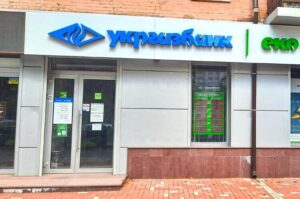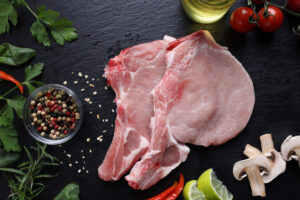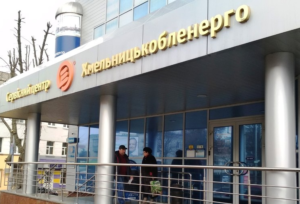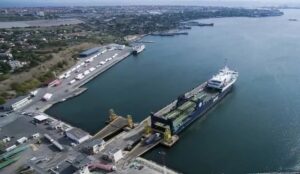
The state-owned Ukrgasbank (Kyiv) has provided Lviv with a five-year loan of UAH 650.5 million for repairs to schools, hospitals, streets, and park improvements.
According to the bank’s website on Thursday, the loan will be used to renovate educational, healthcare, cultural, and urban infrastructure facilities.
According to Viktoria Dovzhik, director of the financial policy department of the Lviv City Council, they are consciously taking on long-term commitments for investment in the city.
As specified to Interfax-Ukraine, the loan will be issued for a term of five years, but other terms of the loan are not disclosed.
According to the National Bank of Ukraine, in April 2025, Ukrgasbank ranked fifth (UAH 220.0 billion or 5.9%) among 60 banks operating in the country in terms of total assets.
As reported, in the first quarter of this year, Ukrgasbank issued two loans to Kryvyi Rih for a total amount of UAH 105.5 million for a term of seven years with a grace period of 12 months. The interest rate on the loan of UAH 87.6 million is 14.5% per annum in the first year and, from the second year, a variable UIRD 12M +3% with annual review, but not exceeding 23%. The second loan of UAH 17.9 million is issued at an interest rate of 16% per annum for the first year, which from the second year is UIRD 12M + 3.62% with annual review, but also not exceeding 23%. It was explained that 3.62% is 16% minus the current UIRD 12M at 12.38%.

Purchasing prices for pork remained relatively stable at the beginning of June, at 92-94 UAH/ton, according to the Ukrainian Pig Farmers Association (ASU) based on the results of its weekly monitoring of purchasing prices.
“The first summer trades ended with stable quotations for most operators or a slight correction of 0.5-1 UAH/kg for some market players. Therefore, prices for live pigs this week mostly fluctuated within the range of 92-94 UAH/kg, although there were both higher and lower offers. The latter, in particular, concern the sale of animals in poor condition,” the analysts explained.
According to their information, thanks to positive price changes in the east and south, where the shortage of live cattle is more acute, the average market price stood at 92.8 UAH/kg, which is 0.3% higher than a week earlier.
At the same time, experts noted that the green holidays passed almost unnoticed for the meat market. Therefore, meat processors do not expect a surge in consumer activity in the near future. Some of them hope that improved weather conditions and the approaching holiday season will revive trade and prevent refusals/returns at the final stage of sales.
At the same time, processors are preparing for increased pressure from seasonal factors on pork supply. Although the feedback and mood of processing companies currently vary, most tend to believe that purchase prices at upcoming auctions will remain unchanged, as consistently low sales are offset by a modest supply of live pigs, the industry association concluded.

The Poltava Oil Extraction Plant (POEZ) of the Kernel agricultural holding has officially switched to renewable energy sources certified by the international organization Bureau Veritas Group, the company’s press service reported on Facebook.
According to the report, the agricultural holding will fully supply POEZ with renewable energy from sunflower husks, thereby reducing its dependence on fossil fuels and cutting greenhouse gas emissions by more than 11,000 tons per year. In addition, autonomous power generation will ensure continuity of production and reduce risks to food security.
“This is another step towards transforming Ukraine into a sustainable, energy-independent, and innovative country that knows how to turn agricultural resources into strategic advantages. Now our consumers can make an informed choice and contribute to the green recovery of the country’s economy by supporting a producer of certified sustainable oil,” Kernel emphasized.
It is specified that POEZ became the first company in Ukraine’s food sector to join the Science Based Targets Initiative (SBTi). In addition, it intends to support communities and supply surplus “green” energy to Ukraine’s power grid.
“This step is part of Kernel’s efforts to decarbonize and ensure climate resilience at every stage of our work: from the field to logistics,” the agricultural holding summarized.
The Poltava OEZ of the Kernel agricultural holding specializes in the production of sunflower oil under the Stozhar trademark. Previously, oil under this brand was produced in Vovchansk (Kharkiv region). With the start of the full-scale invasion of Ukraine by the Russian Federation, the work of the SEZ in Vovchansk was suspended and its capacities were transferred to the Poltava region. Before the war, the processing capacity of the Vovchansk SEZ was 330,000 tons of sunflower seeds per year. In turn, the Poltava SEZ is designed to process up to 430,000 tons of sunflower seeds per year and produces unrefined, refined, and hydrated vegetable oil, as well as meal.
Before the war, the Kernel agricultural holding company ranked first in the world in the production of sunflower oil (about 7% of world production) and its export (about 12%). It is one of the largest producers and sellers of bottled oil in Ukraine. In addition, it is engaged in the cultivation and sale of agricultural products.
In the first nine months of 2025, Kernel increased its net profit by 7% to $218 million, with revenue growing by 19% to $3.092 billion and EBITDA increasing by 4% to $398 million.

On June 12, PJSC Khmelnytskoenergo announced a tender for compulsory motor third-party liability insurance for owners of land vehicles, according to the Prozorro electronic public procurement system.
The expected cost of the services is UAH 4.209 million. Documents for participation in the tender will be accepted until June 20. The winner of a similar tender a year ago was Guardian Insurance Company.

One of Ukraine’s largest grain market operators, Nibulon, has signed a contract with the seaport of Chornomorsk for the transshipment of up to 1 million tons of agricultural products in preparation for the new marketing year, the grain trader’s press service reported on Facebook.
The agricultural holding noted that the signing of this contract was a decisive step in the formation of a flexible logistics model that will allow Nibulon to maintain continuity of exports even without access to its own terminal. In addition, despite the surplus of transshipment capacity on the market, the company managed to achieve a balance of interests. Furthermore, optimized regional logistics will help create added value for Ukrainian farmers.
“Our volume and stability are tools that protect farmers. We work with over 3,000 small and medium-sized agricultural producers who, thanks to efficient logistics, receive competitive purchase prices, allowing them to plan and develop even in difficult conditions,” emphasized Sergey Kalkutin, Nibulon’s logistics director.
The company also emphasized that negotiations with other port operators are currently ongoing.
Before the war, Nibulon cultivated 82,000 hectares of land in 12 regions of Ukraine and exported agricultural products to more than 70 countries around the world. In 2021, the grain trader exported a record 5.64 million tons of agricultural products and delivered record volumes to foreign markets in August (0.7 million tons), in the fourth quarter (1.88 million tons), and in the second half of the year (3.71 million tons).
It is currently operating at 32% of its capacity, has created a special unit for demining agricultural land, and has been forced to move its central office from Mykolaiv to Kyiv.

Israel is closing its diplomatic missions worldwide and consular services will not be provided, the Israeli Embassy in Ukraine said.
“In light of recent events, Israeli missions around the world will be closed and consular services will not be provided,” a statement on the embassy’s website said on Friday.
It is noted that Israelis abroad can use an online form to report their location and current status.
Source: https://new.embassies.gov.il/ukraine/en/announcements/rising-lion-israel-iran-june-2025